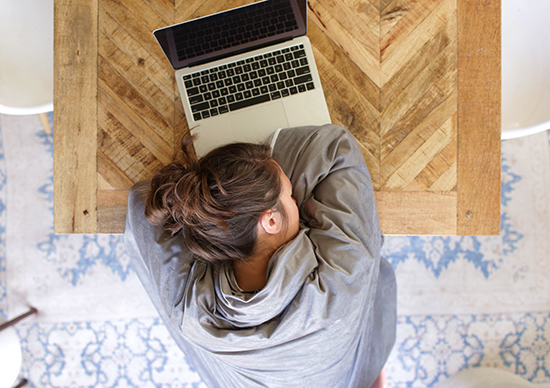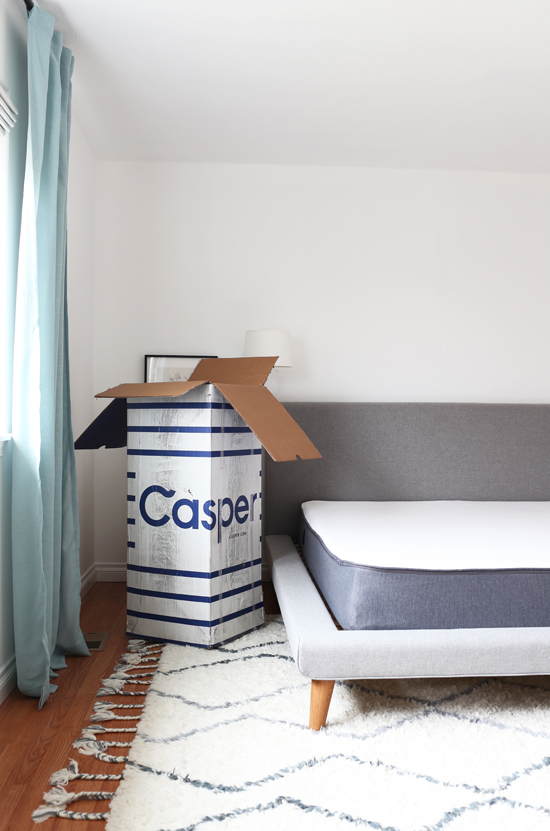This post is written in partnership with Tranquility. All opinions are my own.
We all know that sleep is important. In fact, it's as crucial as exercise and eating well, according to Medical News Today. A good night's sleep can make a huge difference in our productivity, mood, and overall well-being. And yet, many Americans suffer from lack of sleep. Sometimes, the reason is obvious: we're staying up way too late binge watching a show, or we're sick, or we have a baby waking us up in the middle of the night. Other times, the reason isn't as clear. Perhaps we're really trying to go to bed at a decent hour, there's nothing specific we can pinpoint that is keeping us up...and still, we can't seem to get enough sleep. We toss and turn for hours, or wake up in the middle of the night for no apparent reason. I know, because I've been there. Sleepless nights made me feel so frustrated and helpless--and a bit resentful of my innocent husband, blissfully snoozing away (how dare he?!). For the sake of my health, my sanity, and my marriage, I did some research. Some of the results I found were things I already knew (afternoon coffee is not such a great idea). But other things were kind of surprising. A lot of "sleep mistakes" we make are super normal, common activities. These daily habits could be sabotaging your sleep without you even realizing it! The good news is, most of them are easy to fix.

1. Changing your sleep schedule on weekends. If you've had a long week of burning the candle at both ends, you may think it's a good idea to "catch up on sleep" over the weekend. But as it turns out, that can do more harm than good. According to
Sleep.org, changing your sleep schedule on weekends can throw off your body's circadian rhythm, giving you the equivalent of social jet lag. This will make it harder to fall asleep or stay asleep the next night...and over time, the health consequences can be more serious, including
an increased risk of developing obesity, type 2 diabetes, and cardiovascular disease.
Try this instead: If you love sleeping in, try to vary your wakeup time by no more than an hour on weekends.
2. Taking long naps. When you're feeling sleep deprived, you might think that a nap would be a good way to get some zzz's in. And that can be true. But if you take too long of a nap, especially later in the day, it can backfire. Long naps can make you wake up groggy and disoriented, and can worse your nighttime sleep problems, creating a vicious cycle.
Try this instead: According to Mayo Clinic, you should aim for naps that last about 10-20 minutes in the early afternoon (before 3pm).
3. Stressing and worrying about something as you're trying to fall asleep. This is a common one for me. I lay down at night, and instead of powering down, my brain goes into panic mode, racing with stress and anxiety. Suddenly, I remember something I forgot to do that day, or dwell on an awkward interaction from earlier, or start worrying about my to do list for the week.
Try this instead: Create a calming nighttime routine to help you wind down before you get in bed. For me, I write down any lingering thoughts or tasks I have running through my head, so I can let go of them mentally until the next day. Then I like to relax under my Tranquility weighted blanket in the evenings, while I'm reading, watching a show, or talking to my husband. I also take my weighted blanket to bed. Studies have shown that a weighted blanket's calming pressure can enhance relaxation and provide a natural solution to better sleep.
If you’re interested in trying a weighted blanket, Tranquility has a range of affordable styles available at Target and Walmart.
4. Sleeping with your phone next to you. Many of us sleep with our phones next to our beds. Maybe we're afraid of missing an important call or text, or we like to scroll social media at night in bed, or we use our cell phones as our alarm. Regardless of the reason, sleeping with your phone next to you is a bad idea. First of all, if you do get a text or notification just as you're nodding off, it'll probably throw off your sleep. Plus, according to
Harvard Health Publishing, the blue light of your phone's LED screen can disrupt your circadian rhythm and suppress the production of melatonin (a sleep-inducing hormone). And that's not even touching on the potential health risks of having a cell phone next to your head all night.
Try this instead: Ideally, put your phone away 2-3 hours before you intend to fall asleep. Keep it another room at night (not your bedroom!). If your phone is currently your alarm, get a standalone alarm clock...you can find lots of options under $20.
5. Sleeping in a room with too much light. Darkness is a natural signal that tells your body it's time to sleep. If you leave on lights at night, even just a light in the hall, it can make it harder for your brain to reach those deeper levels of sleep that you need to feel fully rested. If you have exterior lights turned on or if the sun is still up, then light coming through your window can have the same effect.
Try this instead: Hang blackout blinds or curtains to block out light coming in through your bedroom windows, and make sure that all your lights are turned off inside. If you must use a nightlight, try one with a red bulb (red light
has been shown to be less disruptive to sleep). It's also a good idea to prepare your body for sleep by
dimming the lights a full hour before bedtime.





All pretty common sleep mistakes people make. As someone who's experienced this, trying to sleep while stressing about something at work can be incredibly debilitating, leading to restless days.